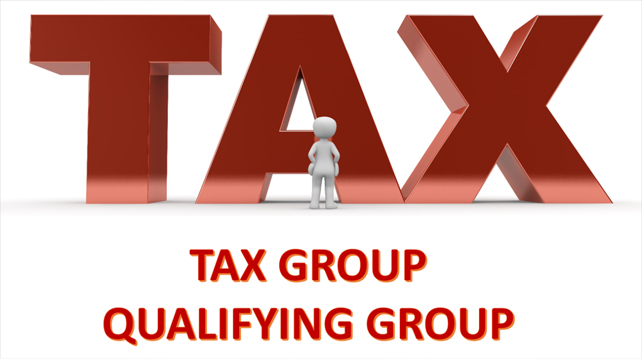UAE CORPORATE TAX – QUALIFYING GROUP AND TAX GROUP
Large businesses often conduct their operations through a group of companies, which has a parent company and a number of subsidiaries. By forming a corporate tax group in the UAE, businesses can also enjoy benefits such as better tax planning ,reduction of administration costs, offsetting tax losses and profits within the group and the fact that inter-company balances and transactions between group entities should typically be eliminated on consolidation, thus reducing your TP compliance obligations.
Companies that fall within the scope of corporate tax in the UAE must assess whether they are legally eligible to create a tax group. Forming a Tax Group may be more efficient from a tax standpoint when compared to each legal entity in a group filing on a standalone basis.
Qualifying Group Formation Under UAE Corporate Tax
Under the UAE corporate tax regime; A Qualifying Group exists where all of the following conditions are met:
- The members are juridical persons which are UAE residents or non-resident persons that have a permanent establishment in the UAE;
- Either owns 75% or more of the other, or a third party owns 75% or more of both entities;
- Neither member is an Exempt Person;
- Neither member is a Qualifying Free Zone Person; and
- Members prepare their financial statements using the same accounting standards, and have the same financial year.
Transfers within a Qualifying Group Tax relief:
The CT Law provides tax relief on intra-group transfer of assets or liabilities between Taxable Persons that are members of the same Qualifying Group. This means that the transfer can be carried out tax neutrally No gain or loss to arise in a qualifying business (transfer of business in exchange for shares/ ownership) exercise between two taxable persons. However, there is a clawback period of 2 years from the date of initial transfer in the case there is a subsequent transfer of such asset or liability outside the permitted group or where transferor or transferee ceases to be the member of the permitted group.
A formal approval from FTA would not be required to consider two or more UAE entities eligible to form a ‘qualifying group’
Tax Group Formation Under UAE Corporate Tax
Under the UAE corporate tax regime; UAE group entities may elect to form a Tax Group provided all the following conditions are met:
- Only juridical resident persons can join a CT Group.
- CT grouping is available only to parent-subsidiary relationships, where all of the following conditions are met:
1. The UAE Parent entity owns at least 95% shareholding of the subsidiary;
2. The UAE Parent entity owns at least 95% voting rights of the subsidiary; and
3. The UAE Parent entity is entitled to at least 95% of the subsidiary’s profits and net assets. - Neither the parent nor the subsidiary is exempt from CT;
- Neither the parent company or the subsidiary is a Qualifying Free Zone Person (i.e. is subject to 0% UAE CT rate).
- The parent and the subsidiaries must have the same financial year and prepare financial statements using the same accounting standards.
FTA’s formal approval is required to form a tax group.
Tax Losses Relief:
Business can offset tax losses against the Taxable Income of subsequent tax periods when computing the Taxable Income for that period. The set-off during any tax period cannot exceed 75% of the Taxable Income for the tax period. Any tax loss remainder can be carried forward to a further subsequent tax period indefinitely.
UAE CT allows transfer of tax losses between group entities.
- Where there is 75% or more common ownership and
- Where other certain conditions are met such as having the same financial year and using the same accounting standards and
- Not being exempt person or qualifying free zone person.
The CT Law provides that the tax losses can only be carried forward and utilised by a Taxable Person on satisfaction of the following conditions:
- The same shareholder(s) hold at least 50 percent of the share capital from the start of the period a loss is incurred to the end of the period in which a loss is offset against taxable income.
- If there is a change in ownership of more than 50 percent, tax losses may still be carried forward provided the same or similar business is carried on by the new owners.
No tax loss relief will be available for the following losses:
- losses incurred before the effective date of CT;
- losses incurred before a person becomes a taxpayer for CT purposes;
- losses incurred from activities or assets which generate income that is exempt from CT; or
- losses incurred by a Free Zone Person that are not attributable to a PE in the mainland
How to calculate the Taxable Income of a Tax Group?
To determine the Taxable Income of a Tax Group, the parent company must prepare consolidated financial accounts covering each subsidiary that is a member of the Tax Group for the relevant Tax Period. Transactions between the parent company and each group member and transactions between the group members would be eliminated for the purposes of calculating the Taxable Income of the Tax Group.
Corporate Tax Liability in the Tax Group
Each subsidiary and the parent company will be jointly and separately liable for the group’s corporate tax for the period during which they are members of the tax group. The joint and individual liability can be limited to one or more named members of the tax group, with approval from the FTA.
Anti-Avoidance Rules
The CT law contains General anti-avoidance rules under which any transaction or arrangement will be counteracted or adjusted if it is reasonably concluded that:
- The transaction or arrangement is not for a valid commercial or other non-fiscal reason which reflects economic reality; and
- The main purpose or one of the main purposes of the transaction is to obtain corporate tax advantage.
Disclaimer:
This summary is based on a review of the UAE’s corporate tax law published by the UAE’s Federal Tax Authority and other publications. Several provisions within the law will be ratified by ministerial decisions or tax authority rulings.

Alia Noor (FCMA, CIMA, MBA, GCC VAT Comp Dip, Oxford fintech programme, COSO Framework)
Associate Partner
Ahmad Alagbari Chartered Accountants






